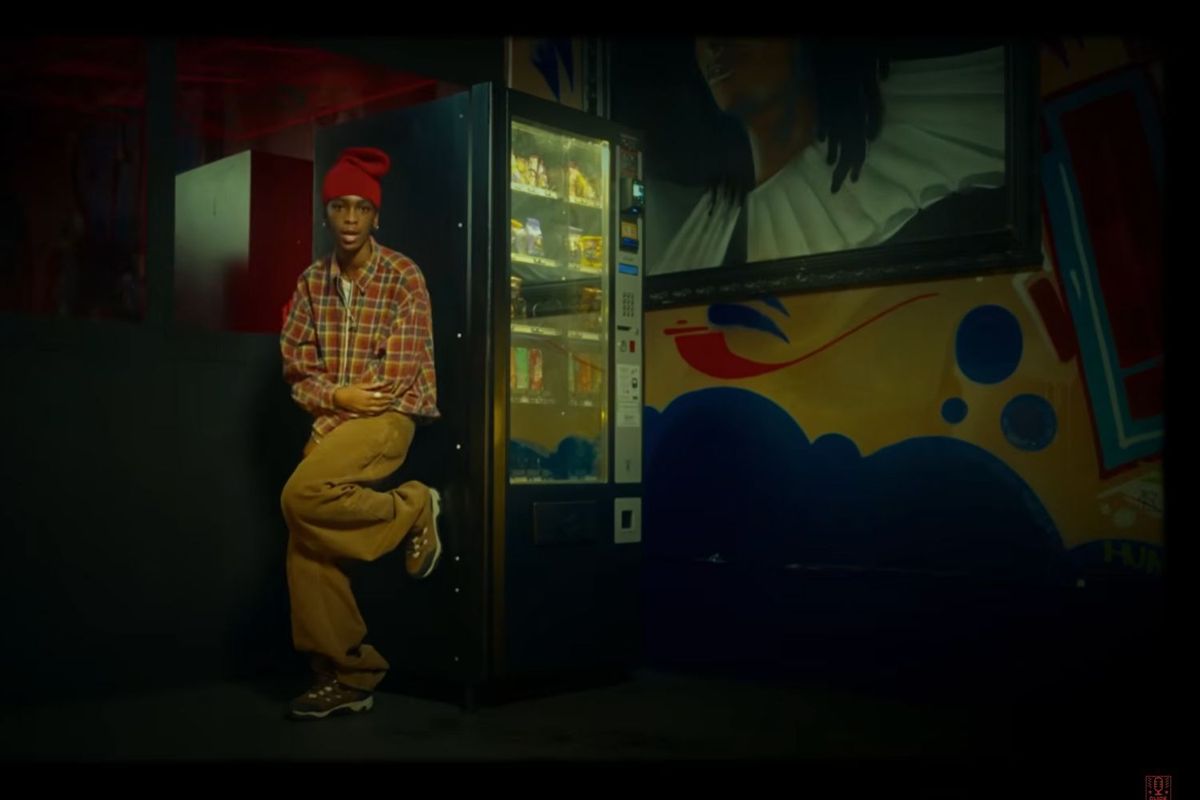South African Rapper K.Keed Refused to Freestyle, Sparking Hip-Hop Debate Online
A radio interview had the Internet talking about whether or not freestyling is still essential in South African hip-hop culture.

A scene from K.Keed’s video for “Legwork”
South African social media has been ablaze with hip-hop-related chatter over the past week following the rapper K.Keed’s refusal to freestyle on DJ Speedsta’s 5 Hip Hop Nights on the radio station, 5FM.
“Let me challenge you right now,” Speedsta says around the five-minute mark of his interview with K.Keed, as Prokid’s “Uthini Ngo PRO” plays in the background. It doesn’t go down well: K.Keed outright refuses to spit anything on the microphone, and after prodding a few more times, Speedsta asks how come it is that rappers in 2025 don’t want to freestyle. His co-host, Shabzi Medallion, an accomplished MC in his own right, goes on to save the day with a short, punchy freestyle.
This exchange had all the ingredients of virality: a stance that goes against established norms, a host who hopes to at least squeeze some bars out of their guest, and the ensuing awkwardness that results from essentially being rejected. By the next morning, clips of the incident had already migrated from 5FM’s YouTube page to TikTok, Twitter, and Instagram Reels. Think-pieces were drafted in real time, with one camp vying for blood and proclaiming a commitment to hip-hop tradition, and the other simply not caring much about the discourse that fueled the importance of freestyles in hip-hop culture.
Beyond this, a broader debate emerged: is the refusal to freestyle a sign of weakness or a reflection of how hip-hop itself has evolved?
When Jay-Z proclaimed that he doesn’t write his rhymes, it altered the fabric of a sacred tradition. Until then — Biggie being a notable exception — the mark of a true emcee was their ability to sit down, wrestle with subject matter, and emerge with 16 coherent bars of victory. After that, and even more so in the Lil Wayne era, it became normal for rappers to boast about how they don’t write. Details matter, because while Lil Wayne might never have picked up a pen, he’s been clear that this doesn’t mean he wasn’t writing, just that he was composing and committing verses to memory rather than to paper.
Then came July 2015, when Meek Mill accused Drake of having ghostwriters. What could have remained Twitter gossip erupted into a defining cultural clash. Ghostwriting, while an open secret in hip-hop — Dr. Dre and Kanye West had long relied on writers — was still taboo. The issue with Drake was that he had positioned himself as a “rapper’s rapper.” That status made him accountable to the rules of authorship and authenticity that had governed the culture for decades.
The fallout reshaped expectations. Where freestyling and penmanship were once sacred, the younger generation’s definition of “real” began to expand. What mattered most was not who wrote the verse, but who delivered the feeling.
Which brings us to the matter at hand. K.Keed’s stance represents a broader attitude among the new generation, who no longer need to go through the traditional route of rap cyphers and performing in front of small audiences to sharpen their rhymes — much like an instrument player would regularly attend jam sessions to hone their chops. It’s grounded in a sentiment that says: ‘If I am to do anything, there better be money behind it.’ Which is fair; the kids shouldn’t be blamed for being by-products of the commercialization of hip-hop culture that has been ongoing since the early ’90s.
But then again, hip-hop is special in that hip-hop heads are very vocal people, and there are rules — much like in any art form, really — without which the music itself might as well cease to exist. South Africa has a rich history of rap-focused specialist shows across community and commercial stations. Bush Radio in K.Keed’s hometown, Cape Town, has been a platform that accommodated freestyle culture on shows like Headwarmerz since the ‘90s, while others, such as the regional YFM, held the fort and laid the foundation for a lot of the fruits that the scene is enjoying now through shows like the Sprite Rap Activity Jam.
A refusal to rap on the spot, while valid, spits in the face of tradition, which further explains why the incident struck such a nerve. It’s not about K.Keed alone, but about what we expect from rappers in 2025. Do we want them to honor the lineage of cyphers, battles, and off-the-dome raps? Does this also include the understanding that not all rappers can go off the top; that it’s okay to ‘free-flow,’ as it were? Or do we accept that the ground has shifted, that “realness” is less about proving technique and more about curating aura, image, and catalogue?
South African hip-hop is at a crossroads where both realities coexist. You’ll still find heads who can go for 10 minutes on platforms like Innercity Cyphers or Sotra Cyphers over an instrumental or live band, but you’ll also find stars who never once set foot in a cypher circle. And maybe that’s the story here: the culture keeps expanding, and each generation decides which rules matter most.- These Photos Are A Window Into South African Hip-Hop’s Mid-2000s Era ›
- 25 South African Rappers Under 25 Killing the Game ›
- Best of the Decade: The Greatest South African Hip-Hop Songs of the 2010s ›
- 10 South African Hip-Hop Love Songs That You Need In Your Life ›
- 26 Pioneers Inducted Into the South African Hip Hop Museum’s Wall of Fame ›

